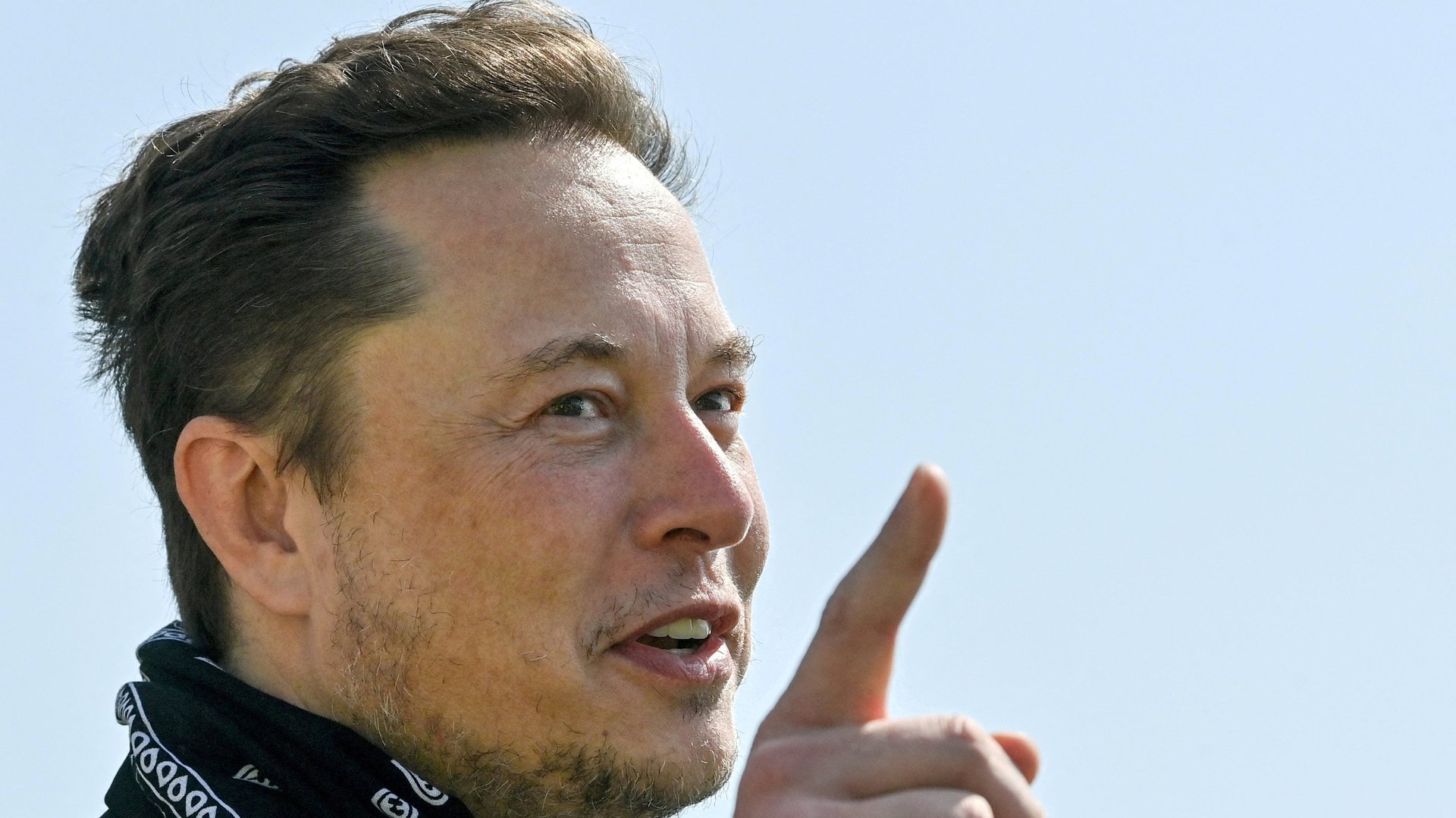Elon Musk is Time magazine’s person of the year
Time magazine has named Tesla and SpaceX CEO Elon Musk as its 2021 person of the year. “Person of the Year is a marker of influence, and few individuals have had more influence than Musk on life on Earth, and potentially life off Earth too,” said the magazine’s editor-in-chief Edward Felsenthal. “In 2021, Musk emerged not just as the world’s richest person but also as perhaps the richest example of a massive shift in our society.”


Time magazine has named Tesla and SpaceX CEO Elon Musk as its 2021 person of the year. “Person of the Year is a marker of influence, and few individuals have had more influence than Musk on life on Earth, and potentially life off Earth too,” said the magazine’s editor-in-chief Edward Felsenthal. “In 2021, Musk emerged not just as the world’s richest person but also as perhaps the richest example of a massive shift in our society.”
The person of the year designation typically goes to an individual or group who’s shaped people’s lives over the past 12 months, for better or worse. When the magazine first started the tradition in 1927 it named Charles Lindbergh, the first man to complete a solo transatlantic flight, as its person of the year; this year it settled on an entrepreneur who sees commercial promise in space flight.
Musk represents “the continuing decline of traditional institutions in favor of individuals,” Time writes. Whereas space exploration was once spearheaded by governments, such ambitious undertakings are now being left to private companies like SpaceX and Jeff Bezos’s Blue Origin. In a wide-ranging interview with the magazine Musk spoke about income inequality, Tesla’s valuation, and his utopian vision for the future.
Why Time chose Musk as its person of the year
Time cited Musk’s disruptive impact on the automobile and aerospace industries. This year Musk’s net worth surpassed $300 billion, while Tesla is now one of the few companies in the world to be valued at $1 trillion.
The magazine credits Musk for nearly single-handedly creating the EV market, “seeing long before others the demand for clean-energy transportation that the world’s climate crisis would eventually propel.” A decade after Tesla went public, US president Joe Biden is solidly focused on EVs, while older rivals are scrambling to design and manufacture their own electric cars to catch up with Tesla.
With SpaceX, Musk hopes to land aircraft on Mars, and eventually “enable humanity to become a spacefaring civilization,” he told Time. The private space company is currently working on building a ship for NASA that will land Americans on the Moon for the first time in more than 50 years.
The Tesla CEO seems to have grand ambitions for the future. The ideal society, he said, would be one in which labor is performed by robots, and humans don’t want for any goods or services. “There’s not necessarily anyone who’s the boss of you,” he said. “I don’t mean to suggest chaos, but rather that you’re not under anyone’s thumb. So you have the freedom to do whatever you’d like to do, provided it does not cause harm to others.”
Musk sometimes gets himself into trouble
“Such cosmic ambition rarely comes without consequences, and Musk still must answer to earthly authorities,” Time notes. He’s often in fairly hot water with regulators, courts, and the general public.
He’s gotten into trouble with the Securities and Exchange Commission several times; most recently the regulator said it was investigating Tesla over a whistleblower complaint alleging the company didn’t notify shareholders and the public of fire risks associated with the company’s solar panel system.
In October a federal jury in San Francisco ordered Tesla to pay $137 million over claims by a former Black contractor that he was subject to racial discrimination at work. A month later, a Tesla factory worker filed a lawsuit alleging rampant sexual harassment at her place of work. Such claims haven’t stopped Musk from tweeting out sexist jokes on social media. “As is obvious from my tweets,” Musk told Time, “they’re humor that I find funny, but not many other people find funny.”